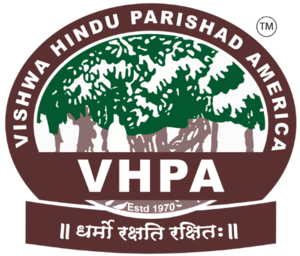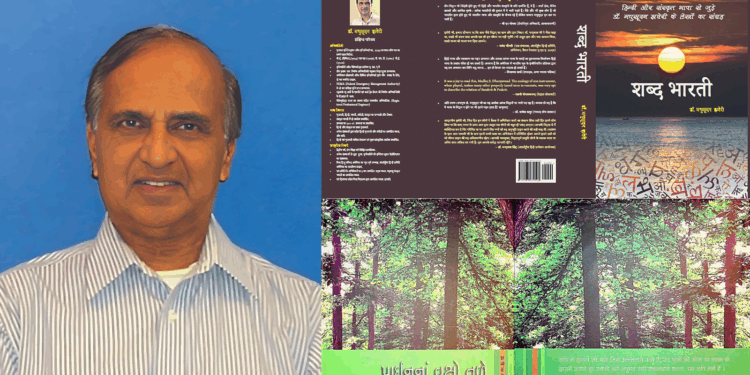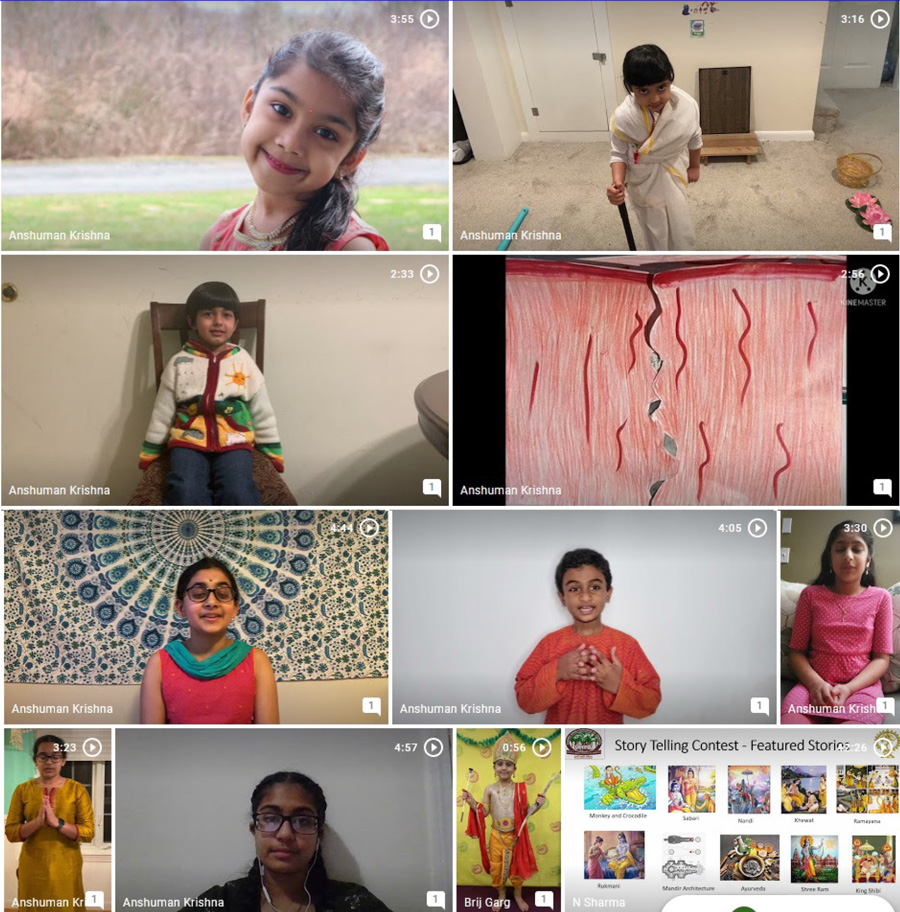It was the early 1970s and I had just been introduced to VHPA by Dr. Mahesh Mehta. In the beginning my association was tentative as I was trying to understand what Hindu movement was and what role VHPA was playing in it. I was impressed by Maheshbhai’s towering personality and his vision, but I was not yet fully committed. That commitment materialized during weekend workshops for volunteers in 1972 when I listened to talks given by another giant named Dr. Madhusudan Jhaveri. Here was a person in prime of his youth who was erudite, articulate and in command of his thoughts. Words were flowing from him like a torrent of Ganga ji. There was fire in what he said, and he was an accomplished orator. This was my initial impression of Madhubhai.
As time passed, we came to know each other closely. I found out that he was a good singer with a baritone voice. While Maheshhbai was immersed in deep thoughts, Madhubhai would regale everyone with jokes and hearty laughter.
Madhubhai had deep study of Swami Vivekananda’s writings and when he presented Swamiji’s thoughts, one would feel as if Vivekanand ji himself were speaking. Madhubhai had the ability to explain difficult subjects like Vedanta in lucid way. I can visualize Madhubhai expounding about Vyashti, Samashti and Parmeshti (व्यष्टि, समष्टि, परमेष्टि) or Prakruti, Vikruti, and Sanskruti (प्रक्रुति, विक्रुति, संस्क्रुति.) His favorite subject was four Purusharthas described in our scriptures.
Madhubhai, a Gujarati was brought up in Maharashtra, so he was fluent in both Gujarati and Marathi. He had powerful grasp on Hindi as well as Sanskrit. He was a born writer and poet too. He has composed excellent poems in all four languages and in English.
Though he was a man of literature, he excelled in technical studies. He was a gold medalist who did his Ph.D. in structural engineering. He was a sought-after professor at the University of Massachusetts at Dartmouth.
Madhubhai published his Gujarati poems in a book titled “पाईनना व्रुक्षो तळे” (Under the Pine trees.) He used Triveni Tanay as his nickname because his mother’s name was Triveni and Tanay in Sanskrit means “born of.”
Madhubhai’s poetry was philosophical and full of deep meaning, but he was equally at ease with lighthearted writings too. The poetry that became very popular with Gujarati audiences was titled TDC थी BDC सुघी, meaning from TDC to BDC. This was written for college magazine when he was studying engineering. It used various technical terms used in engineering studies, e.g., TDC is Top Dead Center and BDC is Bottom Dead Center which refers to movement of a piston in an engine. He took Roman numerals Eta (η), Beta (β), Theta (θ) used in equations and rhymed them with Nita, Rita, and Gita. He took technical terms Alumina and silica and rhymed them with Meena and Sheela! I had occasions to listen to this poem so many times and as an engineer, I could understand and appreciate the humor and pathos in it that revolved around the state of mind of a first-year engineering student.
His other poem दरदनी पोटली (a bundle/shoulder bag of pain) was also telling. It talked about a bright student that fell in love with a girl and neglected his study. The girl leaves him and that rejection, though painful, propels him to excel in his studies.
One can see imprint of his Samskaars cultivated in RSS in his poetry too. In one poem he talks about the desire to be the foundation stone, buried deep and unseen and not the top of a structure which everyone sees and appreciates. His ten-page preface to this book is worth reading for anyone who wants to understand the inner working of Madhubhai’s mind.
Madhubhai was a prolific writer and wrote regularly on प्रवक्ता.कोम (Pravakata.com). Madhubhai authored two more important books in Hindi. These are शब्द भारती and गौरव भारती. शब्द भारती consists of many articles that go into etymology of our languages. It shows how rich Sanskrit, and other Bharatiya languages are; Madhubhai also gives a key to creating innovative words in Sanskrit. In his preface he says,
भण्डार अनुपम, शब्द का, ग़ुलाम क्यों बहार ढूंढता
नाभि में कस्तूरी क्यों, संसार हिरना छानता?
(When you have unique treasure of words, why do you slavishly look (for words) at other languages? Deer has musk in its own naval, why is it running around looking for it?
गौरव भारती is a compendium of highly thoughtful articles on varied subjects. There are articles on our family system, ills of Valentine Day, live in relationship, lies of Aryan Invasion theory, Power of the words Vande Mataram, Method of imparting Samskaras to children, Historical blunders about languages, How to bring about positive feeling for NRIs in USA, America’s Swayamsevak during Indira Gandhi’s Emergency, etc.
Bot these books are available from VHPA bookstore. I recommend every reader to buy these books. These are written by a scholar who also was intensely dedicated to reestablishing glory of Hindu Dharma and Bharat Rashtra.
So far, I have written about Madhubhai’s brilliance only. But above all, he was a dedicated volunteer of VHPA and many of us learnt how to be an ideal Swayamsevak of VHPA, what to read to sharpen our understanding of Hindu Dharma and Hindu issues, how to organize and execute a program, etc. at his feet.
Like many other senior members of VHPA, I was very fortunate that I met Madhubhai in my formative years in VHPA. We worked together for 1984 and 1993 mega Hindu conferences, several smaller conferences and in dozens of youth camps in the northeast. Spending one week of camp with Madhubhai was what we all looked forward to. He was easy to approach and his educational classes in the camp for teenagers were a treat to listen to. Teenagers have a lot of questions and doubts. Madhubhai will put his points so effectively that even the most doubting student would go back convinced. Madhubhai prepared a PERT (Program Evaluation and Review Technique) chart, a management tool taking a camp as a project so that we worked more efficiently. Madhubhai served as the President of VHPA and led it during its growth and challenges that come with rapid growth.
Madhubhai played Kabaddi very well. He was of stout build. I remember one incident from a visit of Shri L. K, Advaniji to Boston. We had arranged a public meeting, and some troublemakers had infiltrated the audience. This was post Babri destruction, so tempers were running high. When Advaniji was about to start his address a few of these guys stood up and started shouting slogans. Madhubhai quickly got up from his seat, grabbed one guy from collar and shook him. That was the end of hooliganism at that meeting. Madhubhai loved to eat. Many a time he would be at our home in Connecticut. When some tasty dish or dessert was left over after everyone ate, Madhubhai would say, let us give justice to this item and lustily finish it up.
He used to call me on and off, but conversation had become difficult because of his hearing loss. I last met Madhubhai three years back in March 2022. It was a blustery, snowy evening. He was in failing health, but he was very happy to see me. he inquired about how I passed my time in retirement and mentioned that he felt lonely and bored. I tried to tell him that he was the motivator for all of us and how could he be bored now? But in my heart, I realized that in the family system that we have in the USA, old age is inevitably lonely. He asked me to take a few copies of his poetry book, which I did. It was a heavy parcel, but I was weighed down more by the burden of the fact that Madhubhai, who was a lion of a man was feeling lonely at the end of a productive and illustrious life.
Madhubhai is gone now, as we all must, but he has left an indelible imprint on thousands of minds. He has inspired many by his writings, his talks, and the way he lived his life. Vishwa Hindu Parishad of America owes a debt of gratitude to Dr. Madhusudan Jhaveri for his lifelong contribution to the organization he helped build from the grounds up.
This article will not be complete without mentioning Pallavibahen, Madhubhai’s Sah-Dharmacharini. Pallavibahen worked shoulder to shoulder with Madhubhai in all his endeavors. I cannot count how many times she cooked for dozens of people for meetings and gatherings. She always wears a bright smile and despite her own health issues, she took care of Madhubhai as an ideal Bharatiya woman to the end. I salute both Madhubhai and Pallavibahen.




![[ India Today ] Ohio senator JD Vance thanks wife, a Hindu, for helping him find Christian faith](https://hinduvishwa.org/wp-content/uploads/2024/06/us-senator-jd-vance-reveals-how-his-hindu-wife-usha-helped-him-find-his-christian-faith-image-re-272530504-16x9_0-120x86.webp)










